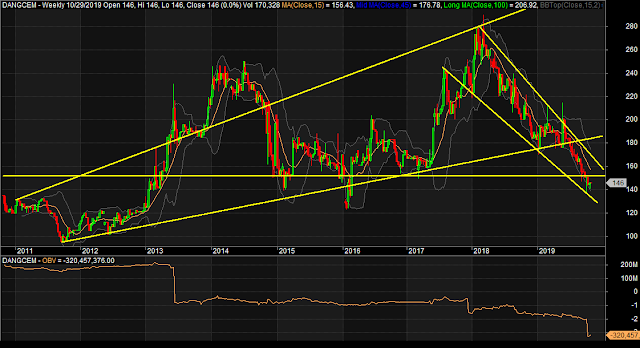Dangote Cement Mulls Share Buyback, Reverse Share split
The board of Dangote Cement Plc, on Wednesday, said it is considering and seeking detailed advice on a share buyback and reverse share split, as well as regulatory approvals
A statement by Edward Imoedemhe, deputy company secretary, on behalf of the board warned shareholders. to exercise caution while dealing with the shares of Dangote Cement.
A share buyback occurs when a company re-acquires its own shares as a more flexible way of returning money to shareholders by paying them the market value per share and re-absorbing those portions of its own that were previously held among the public and private investors.
According to Investopedia, “in recent decades, share buybacks have overtaken dividends as a preferred way to return cash to shareholders.”
Why Buyback?
corporatefinanceinstitute.com answers this question, a company could repurchase its “shares to send a market signal that its stock price is likely to increase, to inflate financial metrics denominated by the number of shares outstanding (e.g., earnings per share or EPS), or to attempt to halt a declining stock price, to name a few.
It further gives reason why Dangote could be engaged in this scheme, when it explains that “when the stock price of a company declines below a number of support levels in a short period of time and does not show any sign of stopping, that may be a time when a company will choose to repurchase some shares. Company management hopes that the share repurchase will help support the price of the stock and halt the downslide.”
When a company buys back shares, it is seen as an indication that management is facing very positive prospects that will place upward pressure on the stock price, as the management, just like institutional and private investors, wants to see the share price rise.
This is seen as a result of their fiduciary duty to increase shareholder value as much as possible and also because these individuals are likely partly compensated in stock.
“A share repurchase generally signals to the market the company management’s firm belief that the price of the stock is going to appreciate in the short term. Going back to the concept of supply and demand introduced above, we see that under such assumptions the demand for the stock may even increase if the signal is recognized as such.”
When a company buys back shares, it may be an indication that the company is facing very positive prospects that will place upward pressure on the stock price. Examples may be the acquisition of another strategically important company, the release of a new product line, a divestiture of a low-performing business unit, etc.
Just like institutional investors and private investors, company management wants to see the stock price of the company rise. This is because of their fiduciary duty to increase shareholder value as much as possible and also because these individuals are likely partly compensated in stock. Therefore, capital gain benefits them personally.
At the end of Wednesday’s trading session, Dangote Cement share price opened at N146 each, attained an intra-day high of N150, before closing at N145 each.
Dangote Cement was listed at N135 each on October 25, 2010, and attained its lowest level of N96 per share in November of the following year. It, however, attained an all-time high of N290 in March last year.
Over the last five years, Dangcem has N122.90 at its bottom.
https://investdata.com.ng/2019/10/dangote-cement-mulls-share-buyback-reverse-share-split/#more





Comments
Post a Comment